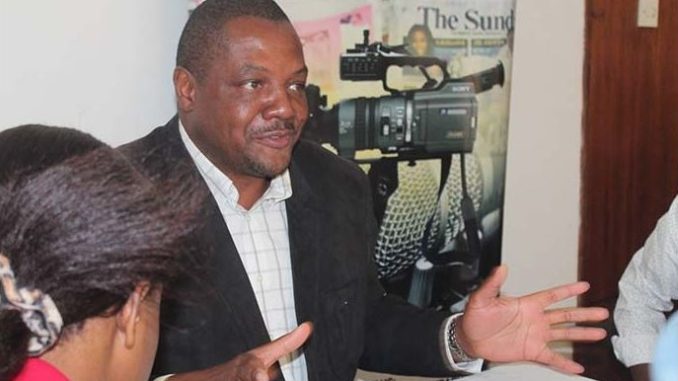
A ZIMBABWEAN journalist who was imprisoned on charges of incitement by President Emmerson Mnangagwa’s government has accused the successor to Robert Mugabe of having him jailed because he exposed pandemic-linked corruption implicating the First Family.
Hopewell Chin’ono, who was bailed on September 2 after spending six weeks in prison on charges that drew international condemnation, told the Financial Times that he was repeatedly told by jailers that they were under orders to punish him.
“Prison officers said that they were working under instruction … guards said they were acting on orders of the President,” he said.
“The only reason I got out is because of unrelenting international pressure … they would have thrown the key away.”
Mnangagwa came to power in a 2017 military coup against Mugabe with promises to end abuse of Zimbabwe’s legal system to silence dissent.
The detention of Chin’ono, an award-winning investigative journalist, became a symbol of a return to oppression amid rising unrest over corruption and an economic meltdown in the southern African nation.
Chin’ono still faces trial.
Since March, the Zimbabwe Human Rights Association, a non-governmental organisation, has documented more than 800 alleged human rights abuses, including arbitrary detentions, scores of assaults by security agents, and 20 attacks on journalists.
- Chamisa under fire over US$120K donation
- Mavhunga puts DeMbare into Chibuku quarterfinals
- Pension funds bet on Cabora Bassa oilfields
- Councils defy govt fire tender directive
Keep Reading
South Africa’s President Cyril Ramaphosa, the African Union commission, and church groups have added to international pressure on Mnangagwa over the repression.
As the global pandemic hit Zimbabwe this year, Chin’ono published stories on the basis of leaked documents, including invoices and contracts, alleging that key COVID-19 supplies were being looted.
Local media also reported on the alleged graft.
Chin’ono accused Collins Mnangagwa, the President’s son, of involvement.
Collins has denied wrongdoing.
Mnangagwa’s ruling Zanu PF party ordered Chin’ono to back off.
“My problems started when I started doing these corruption exposés” on social media and the local Press,” he said.
“When it was tied to Mnangagwa’s family, it became a big issue for Zanu PF.”
Mnangagwa’s office did not respond to a request for comment on the claim that the President’s officials gave instructions for Chin’ono to be given severe treatment.
His government has repeatedly denied that Chin’ono was arrested as punishment for reporting about corruption.
It also denies Zimbabwe is in any form of crisis.
Chin’ono was arrested by State agents in July, ahead of planned protests against corruption that the State said were “incitement to participate in public violence”.
Jacob Ngarivhume, a protest organiser, was detained alongside Chin’ono.
Before his release, the courts repeatedly refused bail for Chin’ono and barred Beatrice Mtetwa, one of Zimbabwe’s most respected human rights lawyers, from representing him.
He was transferred with Ngarivhume to Harare’s Chikurubi Maximum Security Prison.
“When they took me to Chikurubi, I then realised to what extent they wanted to inflict as much pain as they could pre-trial,” he said.
The squalid conditions included being held for up to 17 hours a day in a cell that was designed for 16, but held 43, he said.
Prison conditions also validated his reports that looting had left the State bereft of COVID-19 supplies, he said.
The prison hospital was out of paracetamol and prisoners suspected of being infected with coronavirus were given only warm water to drink.
“There I was having a front-row seat to the consequences of what I was writing about,” said Chin’ono.
“All this comes down to one thing: refusal to stop corruption and looting of public funds.” — ft.com











